Famous People
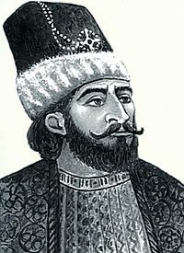
Panakhali khan Javanshir
Founder of Karabakh KhannateFirst he built Bayat fortress to protect the khanate he founded in 1747. Three years later, in 1751, he built Shahbulag castle in the place called Shahbulag in Tarnakut, and in 1752, he laid a foundation of Shusha castle and turned it into the residence of the khanate. Shusha becomes the first city of Karabakh Khanate. In addition to Bayat, Shahbulag and Shusha fortresses, he is the creator of Askeran fortress and Karabakh khan palace. After Panahali Khan built the Shusha fortress, the coin named Panahabad started to be issued in the mint he opened. During the reign of Panahali Khan, until 1763, many monuments, defense dams and fortresses were built in Shusha. (b. 1693 - d. 1763)
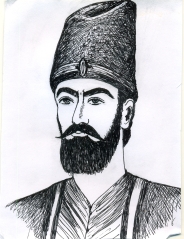
Ibrahimkhalil Khan Javanshir
II Khan of Karabakh KhanateKarabakh Khanate developed very rapidly during the reign of Ibrahimkhalil Khan (b. 1732 - d. 12.06.1806). Very favourable environment was created for smart and educated people to live in Shusha. The city attracted many people from scientific, cultural and arts sector. Construction work in the city was widespread. Shusha was beautified, Khan's palaces, residential houses, fortress walls were built, and new schools were opened.
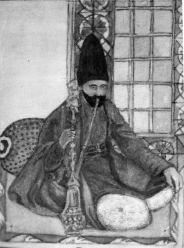
Mehdigulu Khan Javanshir
The last Khan of KarabakhThe last khan of the Karabakh Khanate, ruling from 1806 to 1822 (b. 1775 - d. 15.05.1845). He is the father of the famous Azerbaijani poetess Khurshidbanu Natavan.
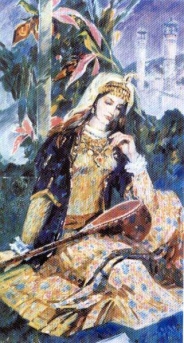
Aghabayim agha
Azerbaijani poetessShe is the daughter of the second khan of the Karabakh Khanate, Ibrahimkhalil Khan, and the wife of the Qajar Shah Fatali Shah, and the aunt of another famous poetess Khurshudbanu Natavan. She wrote his poems under the nickname Aghabadji. (1780-1832)
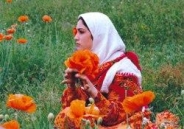
Govhar Agha
Daughter of Ibrahim khanThe daughter of Ibrahim Khan and the sister of Mehdigulu Khan, one of the Karabakh Khans. Govhar Agha was considered the beauty of Karabakh and the South Caucasus in her youth, and one of the famous philanthropists of her time in Karabakh in her old age. The Upper and Lower Govhar Agha mosques and many other public buildings were built with his funds and put to use by the community. (1790—1888)
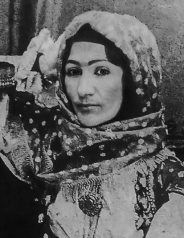
Khurshidbanu Natavan
Prominent Azerbaijani poetessKhan's daughter Khurshidbanu Natavan (August 6, 1832 - October 2, 1897) was a prominent poetess, philanthropist, artist of 19th century Azerbaijan. The daughter of the last Karabakh Khan, Mehdigulu Khan Javanshir. According to the Resolution No. 211 of the Cabinet of Ministers of the Republic of Azerbaijan dated May 7, 2019, Khurshidbanu Natavan was included in the list of authors whose works are protected by the Republic of Azerbaijan.
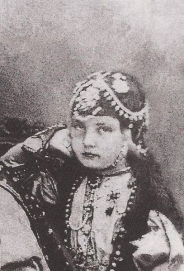
Khanbika khanim
Azerbaijani poetessKhanbika Khanim (1856 - 1921) is an Azerbaijani poetess, the daughter of Khurshidbanu Natavan.
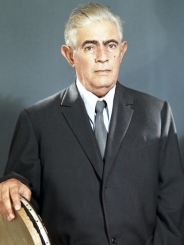
Khan Shushinski
SingerKhan Shushinsky (born: Isfandiyar Aslan oglu Javanshir; August 20, 1901, Shusha - March 18, 1979, Baku) - singer, People's Artist of the Azerbaijan SSR (1943) and laureate of the Order of Honour.
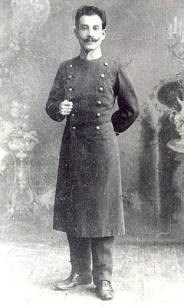
Azad bey Amirov
DoctorAmirov Azad bey Abbas oglu (1883, Shusha - 1939, Baku) is a doctor, pedagogue, one of the first physiologists in Azerbaijan. A graduate of the Transcaucasia (Gori) Teachers' Seminary.
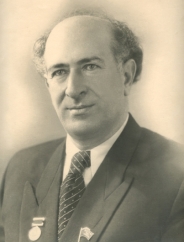
Bulbul
Azerbaijani opera singerBulbul (full name: Murtuza Mashadi Rza oglu Mammadov; June 22, 1897 – September 26, 1961) — Azerbaijani opera singer (lyrical-dramatic tenor), classical performer, music folklore researcher, founder of professional vocal art of Azerbaijan, professor (1940), USSR folk artist, "Stalin" prize laureate.
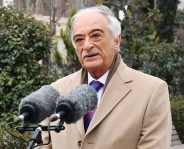
Polad Bulbuloglu
Composer and singerPolad Bulbuloglu (born: Polad Murtuza oglu Mammadov; February 4, 1945) — Azerbaijani composer and singer, former Minister of Culture of Azerbaijan (1988-2006), Ambassador Extraordinary and Plenipotentiary of Azerbaijan to Russia (since 2006), People's Artist of the Azerbaijan SSR (1982).
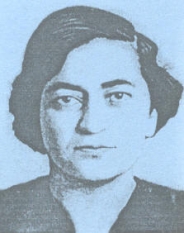
Aliya Rustambayova
II WW heroRustambayova Aliya Fatulla gizi (1907 - 1942) — Hero of the Second World War, participant of the partisan movement, doctor
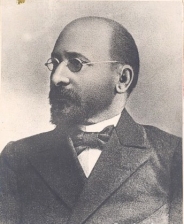
Najaf bey Vazirov
Writer and playwrightNajaf Bey Fatali bey Oglu Vazirov (February 17, 1854 - July 9, 1926) was an Azerbaijani writer and playwright. He had an exceptional role in the development of Azerbaijani dramaturgy, in enriching its idea-aesthetic content and artistic craftsmanship qualities, in the creation and development of the national theatre. He closely supported the national liberation movement with all his social activities and literary creativity, laid the foundations of the genre of tragedy in Azerbaijani literature and closely participated in the expansion of the enlightenment movement that turned against the feudal-patriarchal structure in Azerbaijan.
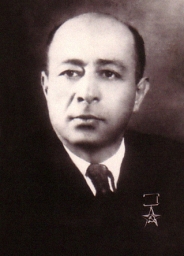
Suleyman Vazirov
Minister of Oil IndustrySuleyman Azad oglu Vazirov (November 18, 1910 – February 7, 1973) — the 1st Minister of Oil Industry of Azerbaijan SSR, Hero of Socialist Labor (1944).
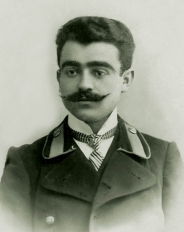
Yusif Vazir Chamanzamanli
Azerbaijani writerYusif Vazir Chamanzaminli (September 12, 1887 – January 3, 1943) — Azerbaijani writer, statesman. The first ambassador of the Azerbaijan Democratic Republic to Ottoman Turkey. By the Resolution of the Cabinet of Ministers of the Republic of Azerbaijan dated May 7, 2019, No. 211, Yusif Vazir Chamanzaminli was included in the list of authors whose works are protected by the Republic of Azerbaijan.